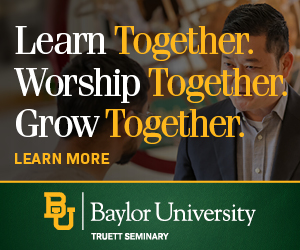- The Explore the Bible lesson for April 1 focuses on John 20:3-9; 1 Corinthians 15:20-28.
On Easter morning, we come together to celebrate the foundation of our faith: Jesus is alive! While the cross is the symbol of Jesus bearing our shame as he gave up his life, it is a meaningless symbol without the empty tomb.
As believers, we must remind ourselves of the resurrection, because it is through our belief that Jesus died and came back to life that we too may anticipate our own resurrection from physical death. Keep in mind, though, that on Easter Sunday, our Bible study groups may welcome those who do not know or believe this truth.
Consider beginning with this question: Why is it difficult to believe that Jesus came back to life? The answers may allow you to chart your course for bringing everyone in your group to a central understanding. Be sure to acknowledge it is natural to doubt, and it takes faith to believe and follow Christ.
Believing in the Resurrection (John 20:3-9)
John’s introduction to the resurrection event gives us an opportunity to discuss the characters in play. Mary Magdalene discovered and reported, and evidently she ran a decent distance to tell Peter and John, both of whom reacted a bit differently when they saw what she saw.
Which of these characters do we identify with? Why? When it comes to a surprise like this, we all react differently. Some of us “run and tell,” while others will “look from a distance,” and still others “get a closer look”. Yet we all witness the same thing.
The most powerful line here is, “He saw and believed” (John 20:8b). But it is curious that verse 9 tells us they still did not completely understand. Ask your group: How is it possible to believe and not understand?
We must know that faith is believing what we do not see (Hebrews 11:1). Yet, because of experience or testimony, we trust. These witnesses saw the empty tomb, but today we are left to believe without that sight. And it is that belief we must have for salvation to be possible.
Made Alive through the Resurrection (1 Corinthians 15:20-22)
Paul began chapter 15 with a reminder and proof of Jesus’ resurrection. When he wrote this, there were still living witnesses who saw Jesus die and alive after his death. To his audience, it was pretty well believed. But the impact of the resurrection was still a question mark to many.
Even though the resurrection of Jesus is significant and central to Christianity, we cannot move forward without answering this question: What does the resurrection mean for me? The simple answer: Believing changes your life.
Sign up for our weekly edition and get all our headlines in your inbox on Thursdays
Preben Vang sums it up by saying, “What was destroyed in Adam is restored in Christ” (Preben Vang, 1 Corinthians, 207). What separated us from God is removed. Without Jesus, we are left to a life without God; with Jesus, we are offered a life with God. There is no way to live life the same way once God is invited into your life.
Consider inviting those in your group to elaborate on the type of changes that happened in their lives once they were “made alive” after trusting in Christ. The promise of finding true life through faith is better known by the real-life stories of others.
Future Found in the Resurrection (1 Corinthians 15:23-28)
There is more to the resurrection of Christ than a different and better life in the present. While we are alive in our present, imperfect state, there is really only so much “better” we can experience. This is why Paul goes further.
Those who believe are “those who belong to him” who will experience the eternal hope of life after death. In other words, the present life will give way to a perfect life. All of this hinges on when Jesus destroys his final enemy, death (1 Corinthians 15:26). Why is death the last obstacle for a forever life after earthly death?
Even though the language in this section may be a bit confusing, we need to realize Paul is making the point that what Jesus gained from resurrection, we as believers also will gain. We are simply waiting for everything to take place before eternity begins.
Conclusion
All of us look for the “sure out” or the “most likely end” to put our faith in. We do not like to trust or believe in something unless we have a certainty it will happen. We see this from the road we choose to drive home to how we invest for the future. The question is: Can we really have assurance that Jesus came back to life?
The Case for Christ by Lee Strobel shows us the transformation of a skeptic inquisitor to becoming a devoted, believing follower of Christ. As the recent film based on his book revealed, it was when the resurrection was proven that he gave in to believing.
For us to have a future hope and a new life in the present, believing in the resurrection is critical. What keeps us from believing? Not only do we need to ask for ourselves; we also need to consider our friends who do not believe. As we remove the barriers to faith in Christ, we will see even more come to believe Jesus actually did what he said he would do.
Heath A. Kirkwood is lead pastor of First Baptist Church in Lorena.












We seek to connect God’s story and God’s people around the world. To learn more about God’s story, click here.
Send comments and feedback to Eric Black, our editor. For comments to be published, please specify “letter to the editor.” Maximum length for publication is 300 words.